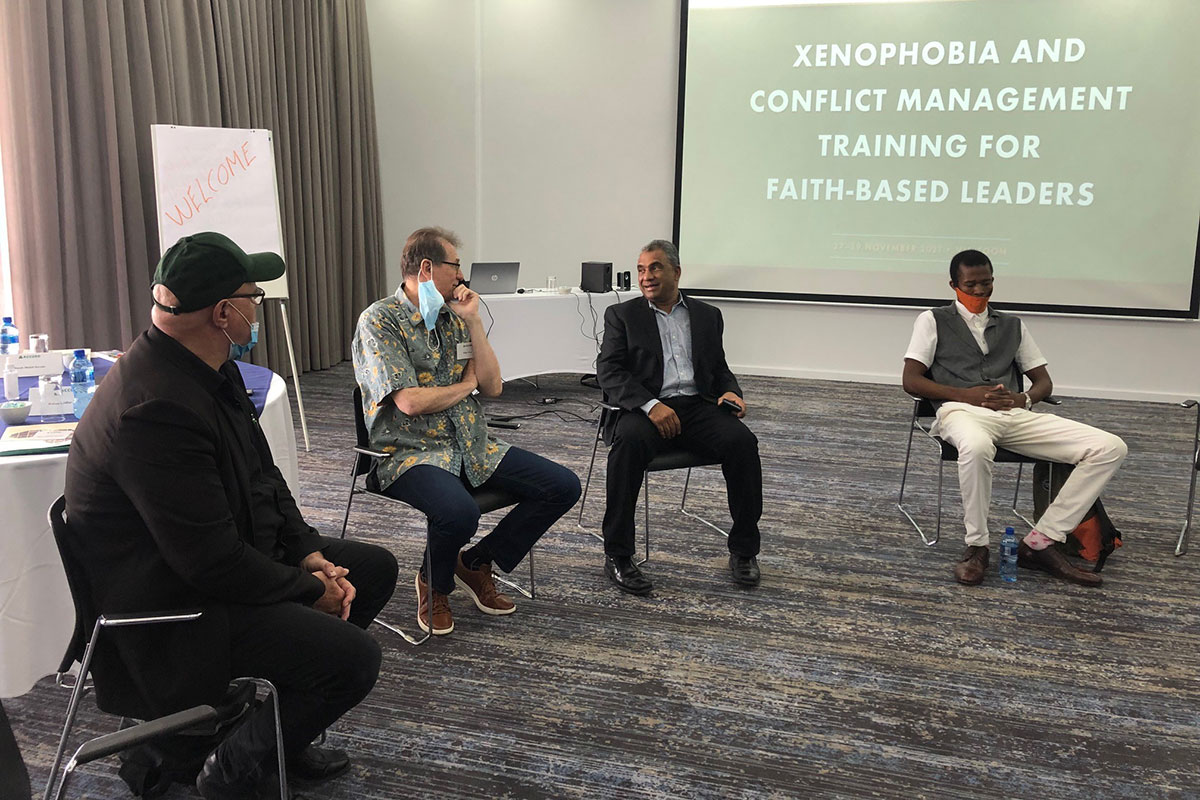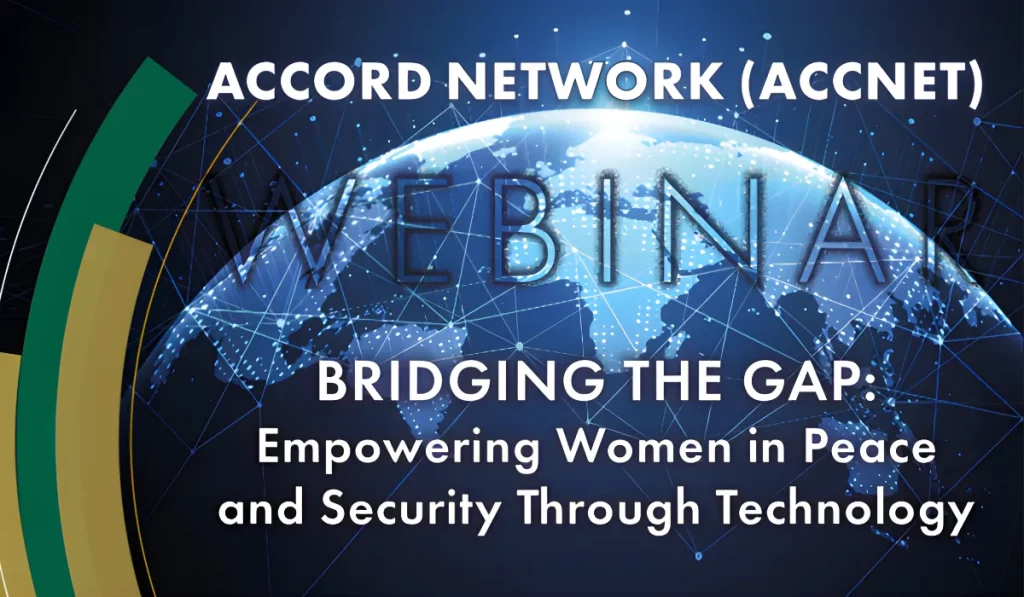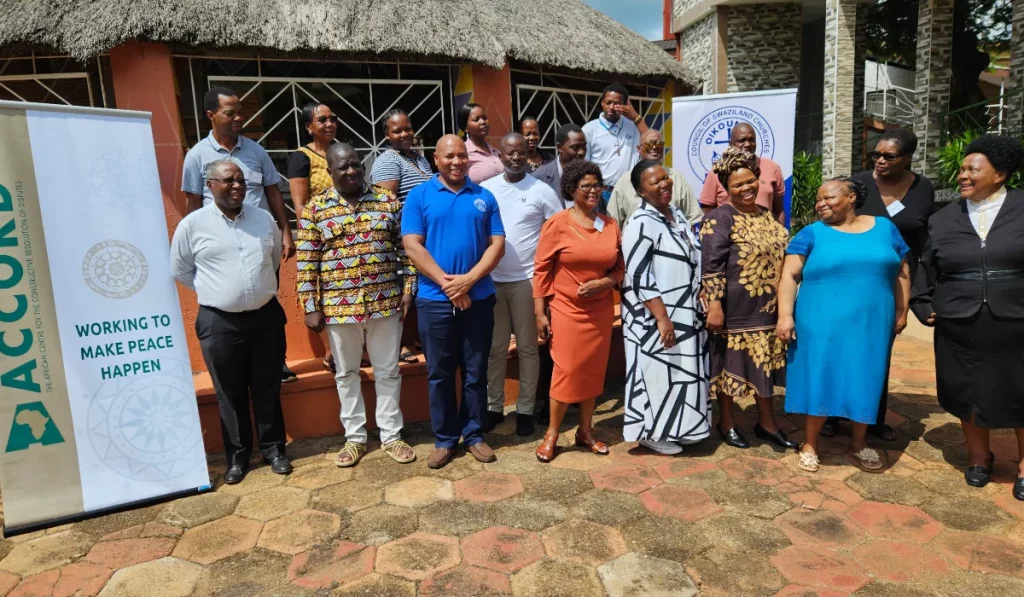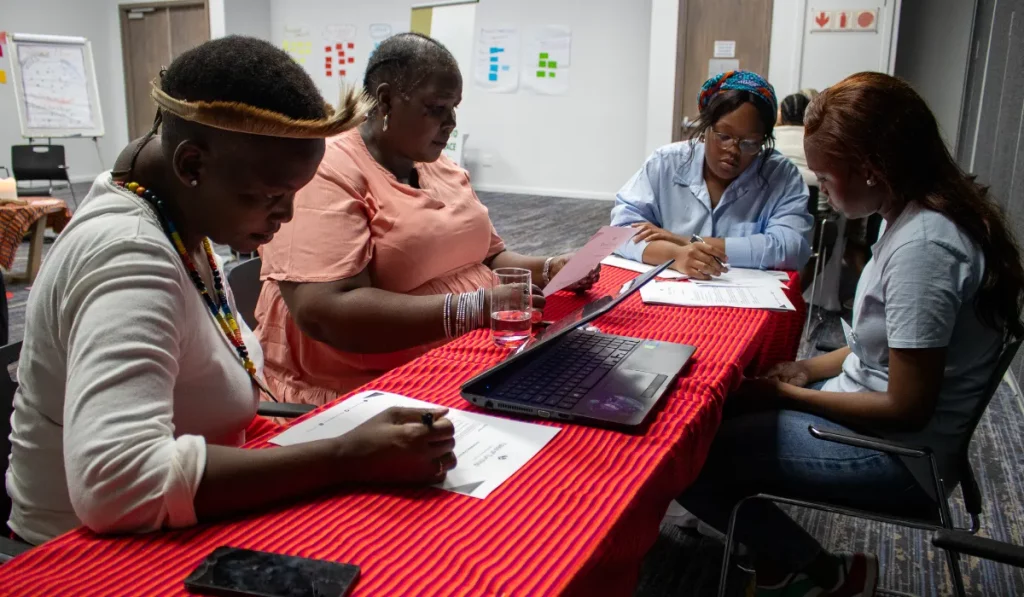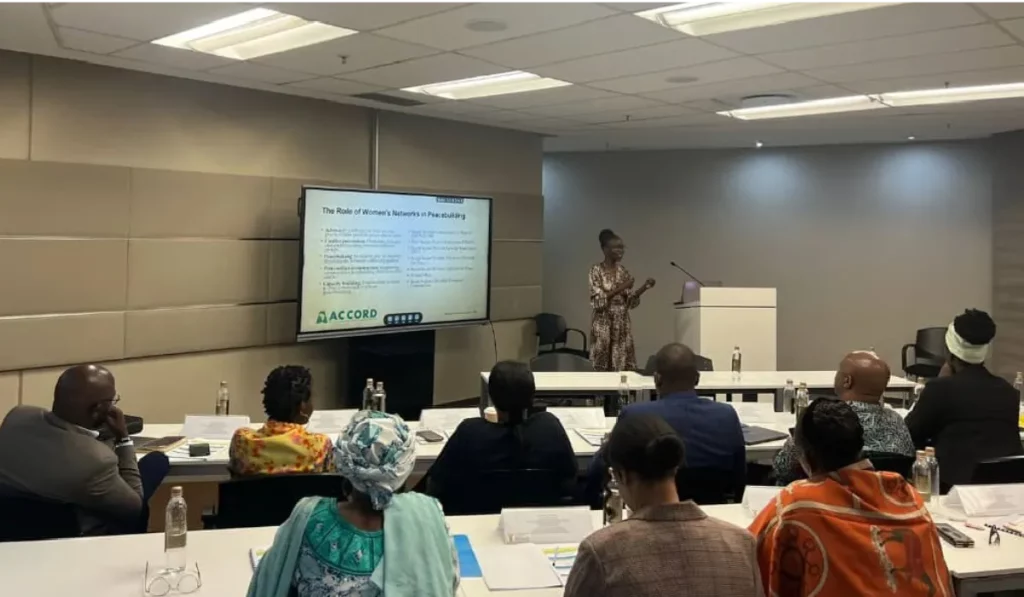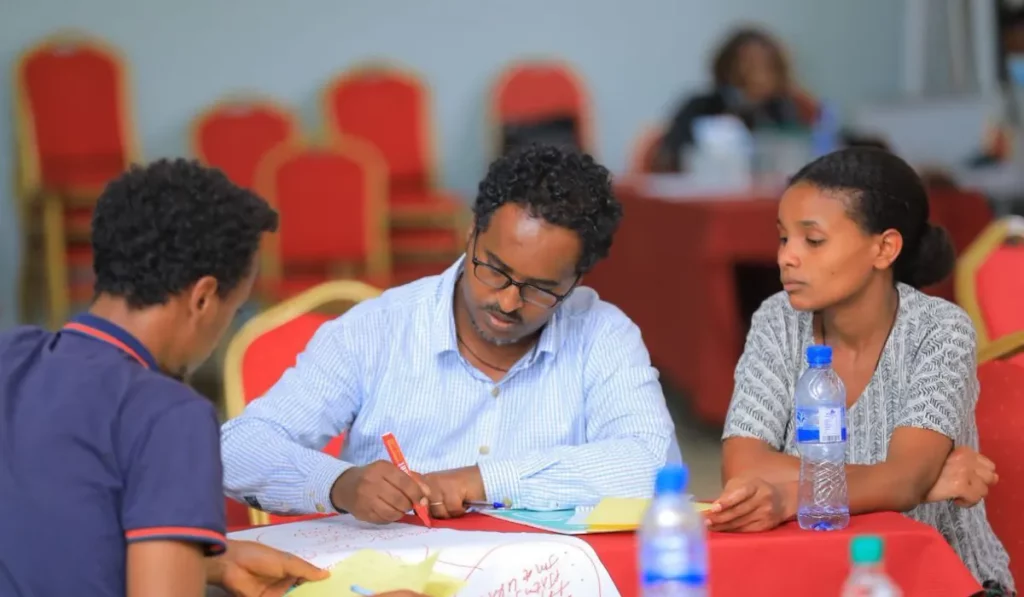The past few decades have seen sporadic but deadly xenophobic attacks in South Africa. In light of these attacks, the KwaZulu-Zulu Natal Christian Council’s Democratic Republic of Congo (DRC) Programme requested ACCORD’s support in conducting a conflict management training for faith-based leaders from both South Africa and the DRC. The Xenophobia Awareness and Conflict Management Training took place from 27 – 29 November 2021, in Durban, South Africa.
The training was premised on the understanding that the escalation and spread of these incidents can be prevented if key community-based leaders have the skills to prevent and manage incidents at their source. ACCORD’s Manager of Applied Knowledge and Learning, Phillip Visser facilitated the training. Particular emphasis was placed on developing participants core skills in peacebuilding and conflict management. The role of community based organisations in facilitating dialogue and reconciliation was also discussed. Faith leaders hold positions of high status and respect, and are often seen as moral authorities. Furthermore, religious gatherings and networks bring individuals together representing the broader sections of communities. The training provided the platform to highlight the important position religious groups hold in communities when it comes to conflict management. Bridging the gaps of understanding between South African and Congolese communities will help support conflict prevention and mitigation efforts around the issue of xenophobia. Training the Congolese and South African faith-based leaders together was a strategic move aimed at strengthening responsive networks of collaboration and understanding between these groups.
ACCORD recognises that relevant local and national stakeholders, such as faith-based leaders, should be better enabled to manage conflict situations. Local communities holding the right skills set and capacity to intervene early in conflict situations is crucial in preventing violence, particularly in the case of xenophobic violence, which manifests most potently at a community level.

